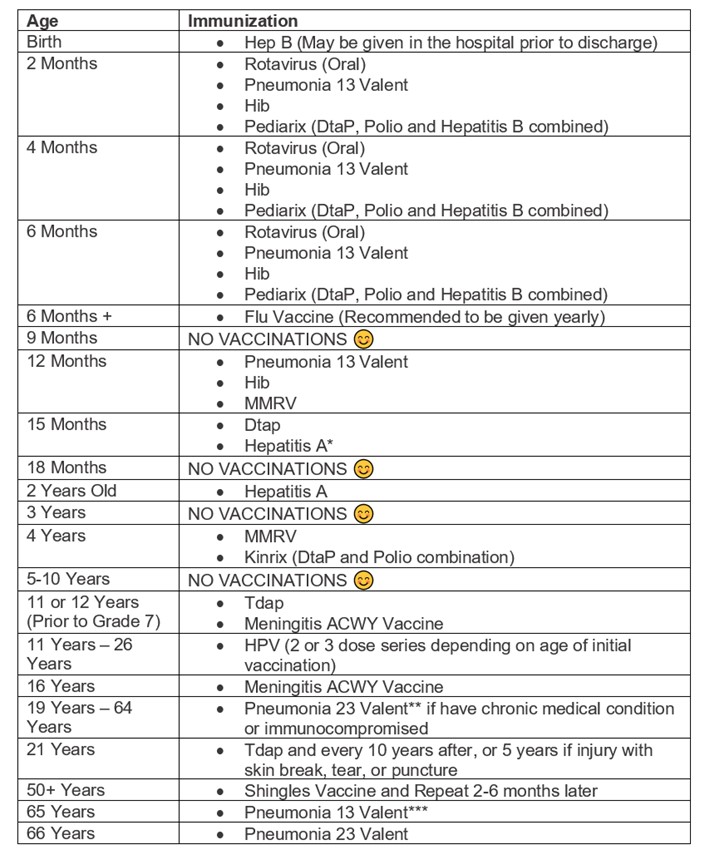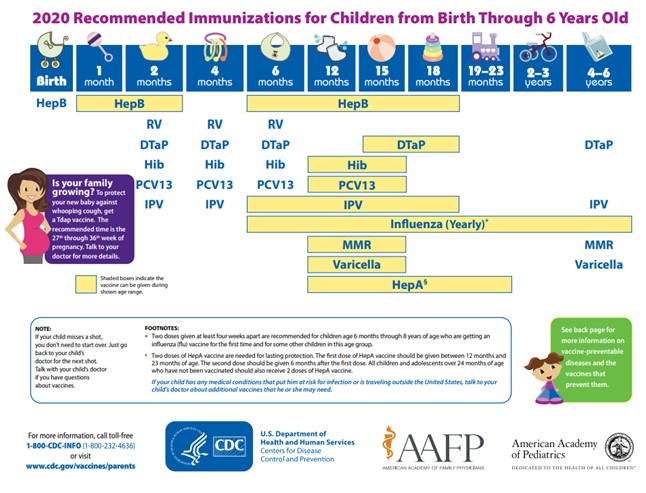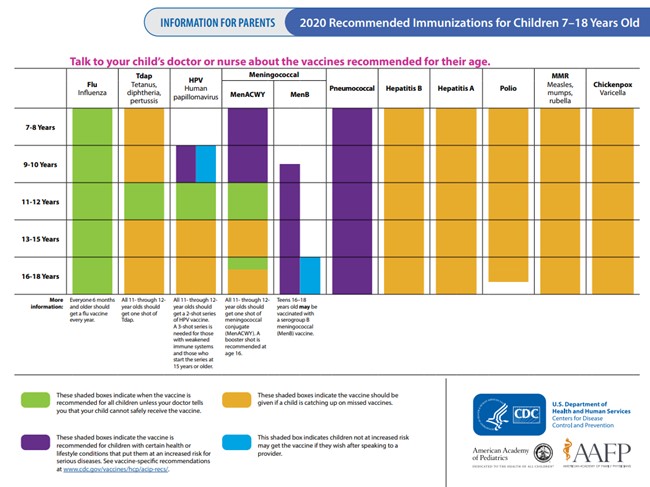Happy November!
We want to take this moment to thank ALL OF YOU! We are so fortunate to have so many wonderful friends and families. We wish you all a wonderful holiday season and many blessings.


It’s more important than ever to get your flu vaccine this year.
Here’s why:
To learn more about the flu, click here.
To view Celebration Family Physician Vaccination Schedule, click here.
Michelle De Marco, PA-C, is a board-certified physician assistant specializing in Family Medicine, with a strong background in clinical treatment of pediatric and adult patients. She received a bachelor’s degree in Biology with a minor in Finance from University of Central Florida. She completed her physician assistant training at Nova Southeastern University and graduated with a Master of Medical Science. Michelle is fluent in English and Spanish. She has a passion for taking care of others and prides herself in delivering excellent care to her patients. In her leisure time, Michelle enjoys travel, good food, and frequenting the theme parks.
Please join me in welcoming Michelle to Celebration Family Physicians!

Contrary to popular belief, Lorem Ipsum is not simply random text. It has roots in a piece of classical Latin literature from 45 BC, making it over 2000 years old. Richard McClintock, a Latin professor at Hampden-Sydney College in Virginia, looked up one of the more obscure Latin words, consectetur, from a Lorem Ipsum passage, and going through the cites of the word in classical literature, discovered the undoubtable source. Lorem Ipsum comes from sections 1.10.32 and 1.10.33 of “de Finibus Bonorum et Malorum” (The Extremes of Good and Evil) by Cicero, written in 45 BC. This book is a treatise on the theory of ethics, very popular during the Renaissance. The first line of Lorem Ipsum, “Lorem ipsum dolor sit amet..”, comes from a line in section 1.10.32.
The standard chunk of Lorem Ipsum used since the 1500s is reproduced below for those interested. Sections 1.10.32 and 1.10.33 from “de Finibus Bonorum et Malorum” by Cicero are also reproduced in their exact original form, accompanied by English versions from the 1914 translation by H. Rackham.
At Celebration Family Physicians, we believe vaccines help protect you, your family, and our community. Dr Craig Yunk and all providers at CFP will only see patients that have been vaccinated or plan to be fully vaccinated. Below is our vaccine schedule.

*Hep A Vaccine may be given to those at risk for hepatitis A virus infection including those with chronic liver disease, HIV, men who have sex with men, use recreational drugs, persons experiencing homelessness, who travel to highly endemic area with hepatitis A or have close personal contact.
** Age 19 through 64 years with chronic medical conditions (chronic heart [excluding hypertension], lung, or liver disease, diabetes), alcoholism, or cigarette smoking: 1 dose PPSV23 l Age 19 years or older with immunocompromising conditions: 1 dose PCV13 followed by 1 dose PPSV23 at least 8 weeks later, then another dose PPSV23 at least 5 years after previous PPSV23
*** Age 65 years or older, administer 1 dose PPSV23 at least 5 years after most recent PPSV23 (note: only 1 dose PPSV23 recommended at age 65 years or older
To learn more about the FLU, click here.
Below are the 2020 Recommended Immunizations for Children from Birth through 18 years old.


Overview
Influenza, commonly called “the flu”, is a contagious viral infection that attacks the respiratory system. Getting the flu vaccine every year is your best defense against the flu. Flu shots are now available at the office of Dr. Craig Yunk at Celebration Family Physicians. It is important to get the flu vaccine, especially this season with the ongoing coronavirus pandemic. The flu and coronavirus can cause similar symptoms. Preventing the flu and reducing severity of symptoms can lessen the number of people needing to stay in the hospital.
Symptoms
Symptoms of seasonal flu can vary from person to person and can cause mild to severe illness and, at times, can lead to death. Unlike the common cold, the flu can develop quickly, have more severe and prolonged symptoms.
Symptoms may include:
People with the flu usually have a fever for two to five days. Flu symptoms usually improve over two to five days but can last for over a week. Weakness and fatigue may persist for several weeks.
Complications: Pneumonia, a lung infection, is the most common complication of the flu. Other complications include bronchitis, asthma flare-ups, and ear or sinus infections. People at risk of complications include:
Causes
The flu is caused by the influenza virus. The virus spreads by tiny droplets when someone with the infection coughs, sneezes or talks. The droplets can land in the mouths or noses of people nearby and on surface or objects. Touching a surface or object that has the flu virus on it and then touching your nose, mouth or eyes is another way of contracting the virus.
Prevention
Getting the flu vaccine every year is your best defense against the flu. The CDC recommends everyone over 6 months old to receive the flu shot. The flu vaccine can reduce your risk of the flu, the severity of symptoms and developing complications. The vaccine takes about two weeks to induce an immune response, so it is best to get the flu vaccine at least two weeks before the onset of flu activity based on where you live.
The flu virus is constantly evolving and mutating which is why we have a new flu vaccine every year. Public health authorities predict the three or four strains that are more likely to cause infection during that year’s flu season.
Because the vaccine is not 100% effective, it is important to take other measures to reduce the spread of infection including:
The recommendations to prevent the spread of coronavirus can also help prevent the spread of the flu and include:
People with the virus are contagious from about a day before symptoms appear until about five days after they start. Children and people with weakened immune systems may be contagious for a slightly longer time. Staying home for at least 24 hours until the fever is gone without taking any medication and avoiding being around others until feeling better will help control the spread of influenza.
Treatment
Treating the symptoms of influenza can help you to feel better. If you have flu symptoms and are at risk for complications, you should see your doctor right away.
Flu symptoms usually improve over two to five days, while other symptoms may last for a week or longer. These measures may help ease your symptoms: